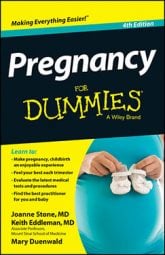If you’re healthy, when you're pregnant you can probably confidently eat most of the foods you usually eat. Nonetheless, the following list contains some potential dangers that deserve a mention:
Cheeses from unpasteurized or raw milk: Cheeses made from unpasteurized or raw milk may contain certain bacteria, such as listeria, monocytogenes, salmonella, and E. coli. Listeria, in particular, has been linked to certain pregnancy complications, such as premature labor or even miscarriage.
The FDA mandates that all cheeses sold in the United States be either made from pasteurized milk or aged more than 60 days (which makes the likelihood of listeria extremely low), so most cheeses you buy at your local market are safe. Just check the label to be sure.
Raw or very rare meat: Steak tartare or very rare beef or pork may contain bacteria, such as listeria, or parasites, such as toxoplasma. Adequate cooking kills both bacteria and parasites. In other words, you want your food to be cooked medium-well to well done.
Liver: Because it contains extremely high amounts of vitamin A (more than ten times the amount recommended for a pregnant woman), liver consumed in early pregnancy may hypothetically be linked to birth defects.
Consuming more than 10,000 international units (IUs) of vitamin A daily (the recommended daily allowance for pregnant women is 2,500 IU) was linked to birth defects in one study. Scientists haven’t proven this danger unequivocally, but you may want to find a substitute for that liver-and-onions craving in the first trimester. And check out the label on your prenatal vitamins to make sure you’re not getting too much vitamin A.

